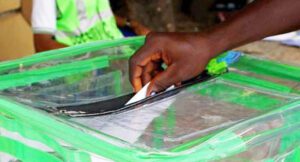Five years service for medical personnel
Just few few months ago, the 2023 macroeconomic outlook report released by the Nigerian Economic Summit Group (NESG) revealed that aside from the considerable health infrastructural gap, Nigeria has lost many medical professionals to brain drain, leading to personnel inadequacy in the health sector.
The report said, “One of the major factors inhibiting Nigeria’s economic development has been the brain drain and knowledge gap in human capital. Knowledge as a significant driver of economies of scale can be increased by investing in education and providing better health services, which is the nation’s human capital formation.
The recent proposal by the Federal House of Representatives to restrain Nigerian-trained medical or dental practitioners from getting their full licenses until they have worked for a minimum of five years in the country is setting social media ablaze and is uncalled for anyday and time.
The bill was sponsored by Ganiyu Johnson, the member representing Oshodi Isolo II Federal Constituency which passed second reading and is considered part of the measures to halt the increasing number of medical doctors leaving Nigeria for better working conditions abroad.
The World Health Organisation last year stated 55 countries (37 are in Africa, eight are in the Western Pacific region, six are in the eastern Mediterranean region, three are in the south-east Asia region and one is in the Americas) have drastic shortage in the coverage of their universal health.
The Report pinpointed some of the countries including Angola, Ghana, Ethiopia, Nigeria, Zimbabwe, Zambia, Afghanistan, Pakistan, Haiti, Congo, Sudan, and Papua New Guinea.
According to the WHO, the affected countries have universal health coverage (UHC) service coverage index below 55 and health workforce density below the global median of 49 medical doctors, nursing and midwifery personnel per 10,000 people.
The WHO emphasised that the countries are vulnerable because they do not have enough health workers required to achieve the UN sustainable development goal target by 2030. “These countries require priority support for health workforce development and health system strengthening, along with additional safeguards that limit active international recruitment,” the statement read.
The Resident Doctors Association have in several times cried out that at least 85 per cent of Nigerian doctors are planning to leave the country to seek greener pastures and this was widely reported in some dailies newspapers.
This is according to the data obtained from the Nigerian Association of Resident Doctors. The report also showed that the preferred countries for immigration intentions are the United Kingdom and the United States of America.
The NARD members are of House Officers, Registrars, Senior Registrars, and Medical Officers below the level of Principal Medical Officers.
The Nigeria Association of Resident Doctors has said six out of 10 doctors in the country plan to leave the country for greener pastures.
This is just as it disclosed that there are only 12,297 resident doctors in both the Federal and state tertiary health institutions in the country.
The NARD President, Dr Dare Ishaya, disclosed these in an interview arguing that as of the last time they issued the questionnaire, they found that out of 10 resident doctors, six of them are planning to leave or have the intention to leave.
The National Association of Resident Doctors (NARD) has spoken out against the House of Representatives bill that would require Nigeria-trained medical and dental practitioners to practise for five years before receiving a full license.
NARD stated its position in a communique issued at the conclusion of the association’s emergency extended National Officers’ Committee (NOC) meeting, which lasted nearly the entire weekend.
According to a statement on Monday, the resident doctors were shocked by the action of the bill’s sponsor, Honourable Ganiyu Johnson (APC/Lagos).
The doctors also decried the Federal Government’s failure to pay members’ salaries as the current administration winds down.
At this juncture, many individuals and stakeholders have kicked against the proposed bill thereby suggesting to the tiers of government to fix the health Sector to provide Infrastructures, medical equipment and incentive for medical personnel at the various health institutions across the country.
We want to authoritatively back the motion that both federal and state governments should look inwards by improving the standard of health facilities in the country and providing basic necessities/ tools that will make it attractive for medical doctors, nurses and other health workers to practise. This is for the fact that most of the Teaching Hospitals, Federal Medical Centres, General hospitals, dispensaries, clinics and Primary Health faculties are just lying without value.
There are situations that patients have to pay for fuel to power the generators as many of these hospitals cannot afford the electricity bill or prepaid meters, and therefore are cutoff from supply. The Federal Government should have a committee with State Governors involvement to resolve issues of meagre salary of medical personnel. Most of the doctors and nurses are leaving because of poor enumeration and welfarism. The Federal Government should quickly call out the bill before the country suffers huge shortage of medical doctors in the nearest future.




